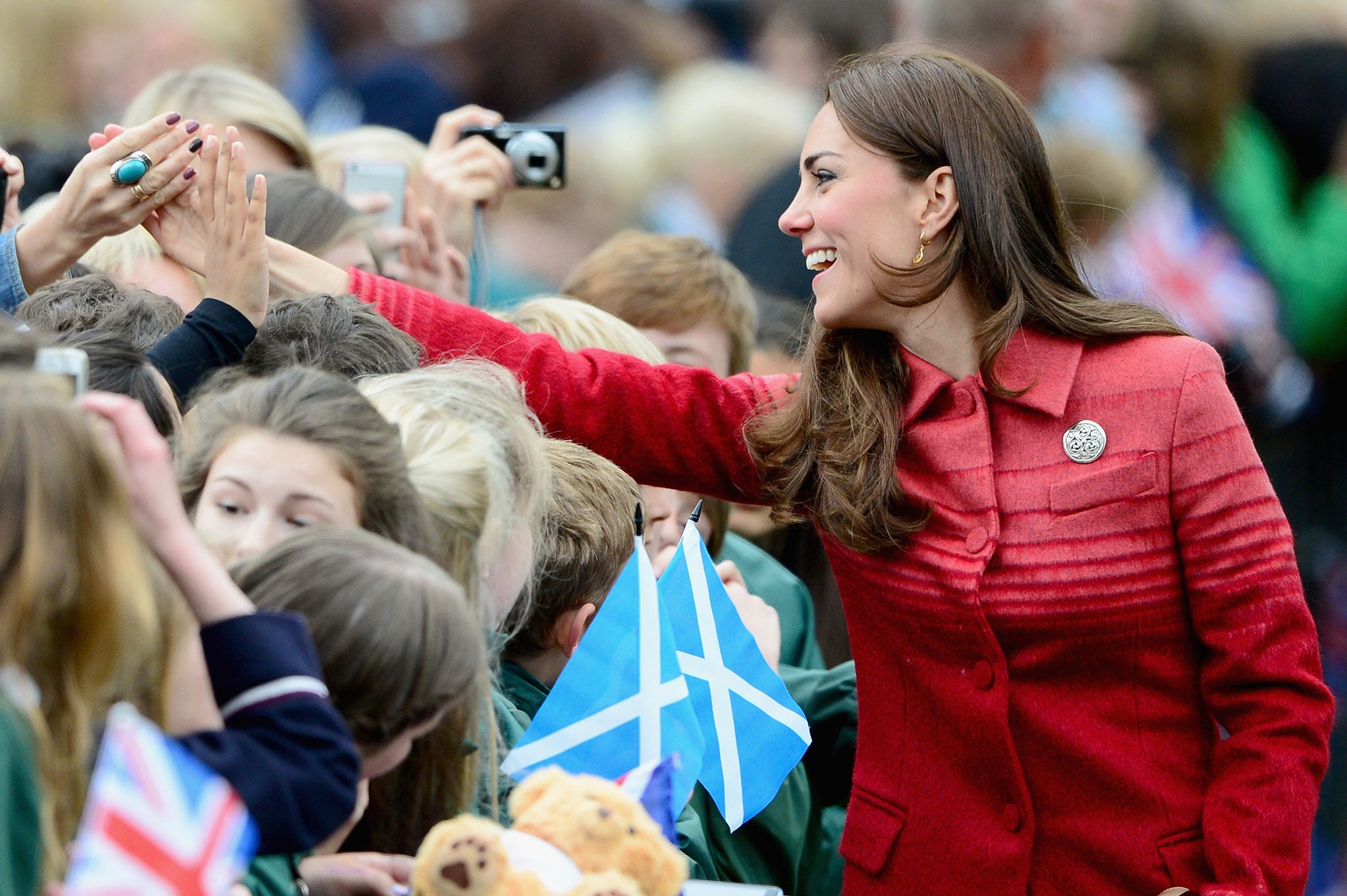Will the Duchess of Cambridge's pregnancy help save the Union?
It's ignited round two of royal baby-mania, but the No camp shouldn't get too excited


Can the Royal baby save the Union? The No camp, in panic mode after the latest polling showed them lagging behind the Yessers, will certainly be hoping so.
It makes you question Kate and Will’s timing – could this all be a plot to make their grandma happy, and keep everything in its right and proper place, kingdom-wise? I doubt it, but if it was, I would certainly be impressed by their dedication to the union, in both senses.
Judging by the response to Kate's second pregnancy on Twitter, the signs are encouraging for the No-ers. After just a year or so of relative quiet, Britain is once again in the grip of royal-mania.
On the website Trendsmap, you can see just how much the news has lit up the world. And looking at Britain, it’s not just in England where people are tweeting about Prince George’s incoming sibling. What might give the No camp hope is that parts of Scotland lighting up too (although whether it’s all positive is impossible to tell).
Maybe they could call it Prince Andrew, although we have one of those already of course. Maybe something like Kenneth, the name of the first Scottish king, or Hamish. If it’s a girl then Margaret might not work as well, after the Thatcher experience, as Moira or Rhona. Anyway, the christening will come too late for September 18th.
However, in reality, it seems unlikely that any royal intervention would swing the referendum, although obviously every vote seems to count at this stage. There may well be some homely Morningside or East Lothian grannies with corgis running around their drawing rooms and the lion rampant flying in the garden who would be encouraged by the reports of royal concern and delighted by the news that Prince William and Kate are expecting again; equally there will be plenty of Scots who will be unmoved, or worse.
So one guesses (to borrow a royal usage) that for every Scot persuaded by the romance and charisma of the Queen to change their vote, there will be another who is turned off by being told what to do by an Englishwoman not matter how high-born (notwithstanding her mum was an aristocratic sort of Scot).
But what does she actually think?
Allow me to put Her Majesty’s words directly to you.
“The problems of progress, the complexities of modern administration, the feeling that Metropolitan Government is too remote from the lives of ordinary men and women, these among other things have helped to revive an awareness of historic national identities in these Islands.
"They provide the background for the continuing and keen discussion of proposals for devolution to Scotland and Wales within the United Kingdom. I number Kings and Queens of England and of Scotland, and Princes of Wales among my ancestors and so I can readily understand these aspirations.
"But I cannot forget that I was crowned Queen of the United Kingdom of Great Britain and Northern Ireland.
"Perhaps this Jubilee is a time to remind ourselves of the benefits which union has conferred, at home and in our international dealings, on the inhabitants of all parts of this United Kingdom.”
Much of that could have been said yesterday, and indeed may well have been during her audience with David Cameron at Balmoral. In fact they came from a very public address he gave at St Paul’s during the service of thanksgiving for her Silver Jubilee on May 4 1977.
It was taken, rightly, as a political move in the then hot debate about a parliament for Scotland, though that cause was lost in the referendum eventually held in 1979. But there is little evidence the Queen’s words, and the spin placed on them, swayed many voters, even in that earlier age of much greater deference for monarchy.
In another echo of current events, the proposal for devolution was approved by the Scottish people with a 51.6% Yes vote – so quite tight but a majority just in favour, However opponents of devolution has placed a requirement for a 40% Yes” vote by the entire Scots electorate, ie including those who stayed home and the turnout was too low for that, so it did not succeed despite the result of the referendum. Eventually the idea was approved in 1997, and the rest, as they say…
Join our commenting forum
Join thought-provoking conversations, follow other Independent readers and see their replies
Comments
Bookmark popover
Removed from bookmarks